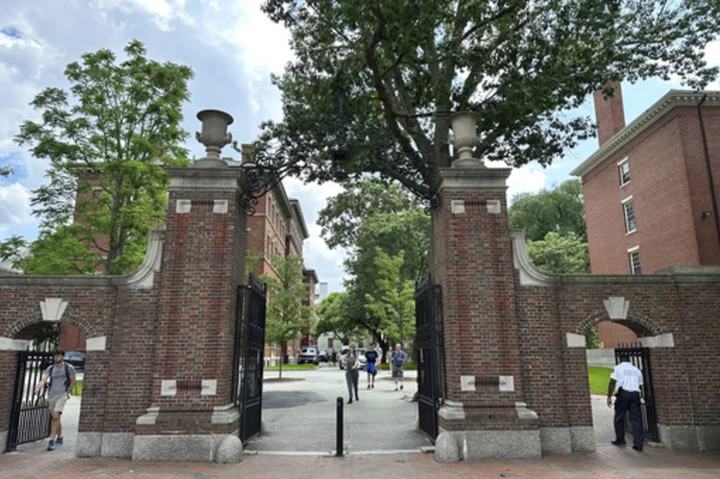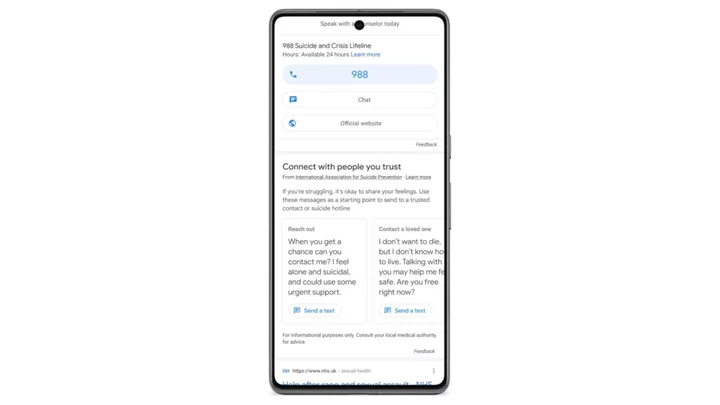Colleges across the country will be forced to stop considering race in admissions under Thursday's Supreme Court ruling, ending affirmative action policies that date back decades.
Schools that have relied on race-conscious admissions policies to build diversity will have to rethink how they admit students. It's expected to result in campuses that have more white and Asian American students and fewer Black and Hispanic students.
The impact of the decision will be felt most strongly at the nation’s most selective colleges, which have been more likely to consider race as one of many factors in admissions. But some less selective universities also consider race, and hundreds of colleges may need to adjust their admissions systems in response to the decision.
Colleges say they're still analyzing the decision, but it's sure to have a dramatic impact nationwide. Here's what we know so far.
WHEN WILL THE RULING TAKE EFFECT?Today's incoming high school seniors will be the first to see any change. Many of them will be applying for college over the next year as colleges remove race from admissions decisions. The process probably won't look much different for students — maybe there will be another question or two about their life experiences — but behind the scenes, there could be big changes in the way colleges evaluate applications.
At Northeastern University, President Joseph E. Aoun said in a campus message the decision “will dramatically alter the use of race as a factor in college admissions.”
HOW MANY COLLEGES CONSIDER RACE?No one knows for sure. Colleges aren’t required to disclose whether they consider race, and the federal government doesn’t track it. A survey of about 200 colleges in 2019 found that roughly four in 10 colleges said race had at least limited influence in admissions decisions. The practice is most common at highly selective institutions, while many less selective schools don’t consider race.
Nine states have separately banned affirmative action at private universities, including California, Michigan, Florida and Washington.
In states that already banned affirmative action, colleges responded by recruiting more low-income students, hoping that wealth would act as a proxy for race. Some colleges also started “percentage” plans that offer admission to top students at every high school in their state. Such approaches have had mixed results. But expect to see more colleges trying alternate approaches.
HOW ARE COLLEGES GOING TO CHANGE ADMISSIONS?An alternate approach floated by some would put greater emphasis on students who overcome adversity. President Joe Biden endorsed that approach Thursday, saying adversity should be a “new standard” in college admissions, rewarding those who overcome challenges related to income, race or other factors.
The court's decision appears to allow such an approach. The conservative majority wrote that “nothing prohibits universities from considering an applicant’s discussion of how race affected the applicant’s life," as long as it's tied to a particular quality the applicant brings to campus.
Applicants may see more colleges add questions about adversity or other life experiences. But the decision also warns about going too far, saying colleges can't simply use essays to revive “the regime we hold unlawful today.”
What's clear is that any direct consideration of race in admission decisions will have to end, meaning colleges will no longer be able to give an edge to underrepresented minorities simply because of their race.
WHAT DOES THIS MEAN FOR LEGACY ADMISSIONS?With affirmative action off the table, colleges face mounting pressure to end other admission practices that disproportionately benefit white and wealthy students. Chief among those are legacy preferences, the practice of giving an admission boost to the children of alumni.
Within hours of the decision, activists and some Democrats in Congress were urging colleges to abandon the policy. Biden took a shot at it too, saying he's asking the Education Department to examine legacy preferences and other practices that “expand privilege instead of opportunity." A small but notable group of colleges have dropped the practice in recent years, including Johns Hopkins University and Amherst College, but it continues at many others, including Harvard and other Ivy League schools.
Activists are also taking aim at other policies seen as barriers for underrepresented students, including donor preferences and standardized tests like the SAT and ACT. Hundreds of colleges made entrance exams optional during the pandemic, and there's a growing push to make the change permanent.
WHAT ARE COLLEGES SAYING?Colleges across the country said they're committed to campus diversity no matter what the court says. Campus leaders say they're still sorting how the decision will affect them, but many expressed optimism that they will legally find other ways to bring a diverse mix of students to campus.
In Texas, Rice University's president said he's “greatly disappointed” but also “more resolute than ever” to pursue diversity. “The law may change, but Rice’s commitment to diversity will not,” President Reginald DesRoches said. At Union College in New York, President David Harris said students of color will continue to feel welcome — “but make no mistake this Supreme Court decision will make our work more challenging,” he said.
Colleges are sending a welcoming message in hopes of avoiding the type of drop-off among Black and Hispanic students that have been seen in some states that outlawed affirmative action.
WHY WERE COLLEGES C ONSIDERING RACE IN THE FIRST PLACE?In several decisions dating to the 1970s, the Supreme Court had upheld affirmative action in college admissions. Past rulings found that colleges have a compelling interest in promoting racial diversity because of the benefits it provides. They say it exposes students to differing viewpoints and helps prepare future leaders, among other benefits. Colleges say race has been a small factor, sometimes giving an edge to underrepresented students. Opponents dispute that notion, citing research finding a boost for Black applicants equivalent to 310 points on the SAT exam.
Thursday's decision reversed course on the earlier decisions. The court found that while the benefits cited by universities are “commendable,” they don't pass legal muster because they aren't concrete enough to be measured and they don't have a clear end goal. “The universities’ main response to these criticisms is, essentially, 'trust us,'” the court wrote.
___
The Associated Press education team receives support from the Carnegie Corporation of New York. The AP is solely responsible for all content.









